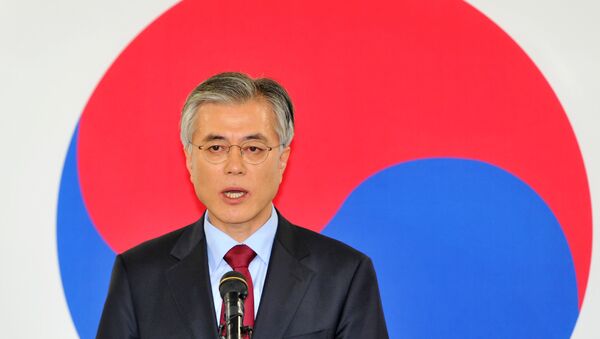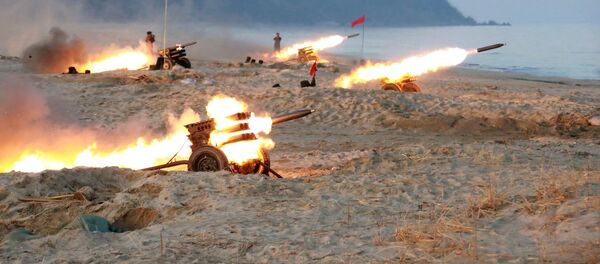According to Hyun Lee, Radio Sputnik's Loud & Clear guest, now that South Korean president Park Gyun-Hee has been impeached, the most probable candidate to win the presidential office is Moon Jae-In, the chairman of South Korea's social-liberal Minjoo party. Moon was a long-time partner and close friend of the late South Korean President Roh Moo-hyun, who ruled between 2003-2008, when the Sunshine Policy was in full bloom.
"There could possibly be a complete change in politics of South Korea," Hyun Lee said, underscoring that, while serving as a chief of staff in the Roh administration, Moon "really pushed forward the Sunshine policy."
Hyun Lee noted that the Trump administration has not yet formulated its foreign policy, including that for the Korean Peninsula, and will probably not succeed in this, thanks to the resignation of Trump's National Security Advisor Michael Flynn, who was thought to be the only person briefed on US intelligence.
"He was the only one who has been listening in to these briefs since November and now he's gone," Hyun Lee says. "And now there's complete vacuum of leadership in terms of defining the US foreign policy."
That vacuum may create breathing room to let Moon pursue his former policy of cooperation with North Korea.
Loud & Clear host Becker observed that North Korea officially opposed the Sunshine Policy, claiming it to be a tool of "soft power," and a cover for a policy of bloodless regime change. Nevertheless, despite loud declarations, DPRK in fact eagerly used the opportunities of cooperation "behind the scenes."
When asked if the Sunshine Policy was in fact an attempt to oust North Korean regime, Hyun Lee agreed.
"Without a doubt, the officials in Washington DC and in South Korea — their agenda is regime change [in North Korea]," Hyun Lee said, adding that, "there are two camps of people who seek regime change in North Korea."
According to Hyun Lee, some seek to oust the current North Korean regime with military power, or some other form of forceful confrontation. Others, however, seek to change the North Korean leadership through soft-power economic means, and other forms of cooperation.
Moon Jae-In, the presidential hopeful believed to be the favorite to win, reportedly said, "We must embrace the North Korean people, as part of the Korean Nation. And to do that, whether we like it or not, we must recognize Kim Jong-Un as their ruler and as our dialog partner."
Between the deployment of the THAAD missile-defense system in South Korea, the launch of North Korea's ballistic missiles, and other developments in the region, Moon's shift in policy appears to be a stark contrast to the policy of Park Geun-Hye, and, to reasonable extent, her predecessor, Lee Myung-bak. The move could scare some in the US "who want only confrontation" and "tension," according to reports. Others project, however, that US President Trump's undecidedness in foreign policy will help the divided region step closer to becoming one again.






